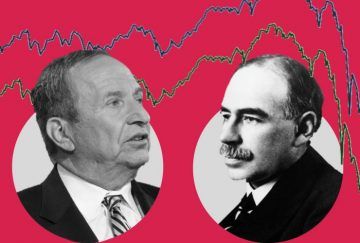Jonathan Kirshner in the Boston Review:
 “Has economics failed us?” Larry Summers, the former president of Harvard and economic adviser for presidents Barack Obama and Bill Clinton, recently asked in an op-ed for the Washington Post. “Hardly.” On the contrary, he declares, “textbook macro . . . has stood up very well.” Dismissing the notion that economists ought to have seen the financial crisis coming with a hand-waving “market breaks are inherently unpredictable,” Summers conveniently forgets that the economic theories he championed in the Clinton administration provided crucial intellectual succor for the deregulation of the financial sector—policy blunders that made something like the global financial crisis an accident waiting to happen.
“Has economics failed us?” Larry Summers, the former president of Harvard and economic adviser for presidents Barack Obama and Bill Clinton, recently asked in an op-ed for the Washington Post. “Hardly.” On the contrary, he declares, “textbook macro . . . has stood up very well.” Dismissing the notion that economists ought to have seen the financial crisis coming with a hand-waving “market breaks are inherently unpredictable,” Summers conveniently forgets that the economic theories he championed in the Clinton administration provided crucial intellectual succor for the deregulation of the financial sector—policy blunders that made something like the global financial crisis an accident waiting to happen.
Summers’s self-confidence is legendary, but he is hardly alone—his sentiments reflect a broad consensus among mainstream economists. In the unhappy 1970s, academic battles were pitched over macroeconomic theory as Keynesians, stumbling over stagflation (high unemployment and high inflation at the same time), were challenged by those who would return economic theory to its pre-Keynesian days under the banner of “new classical economics.” By the 1990s the Keynesians were chased from the scene, and in macroeconomics at least, everybody pretty much agreed on everything important—that is, with modest variations to taste on how to model and manage the aggregate economy.
More here.
